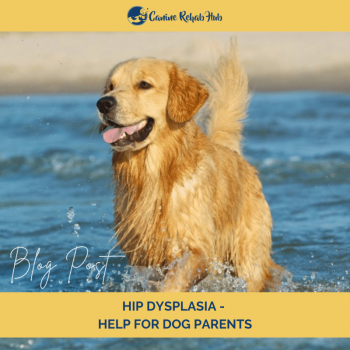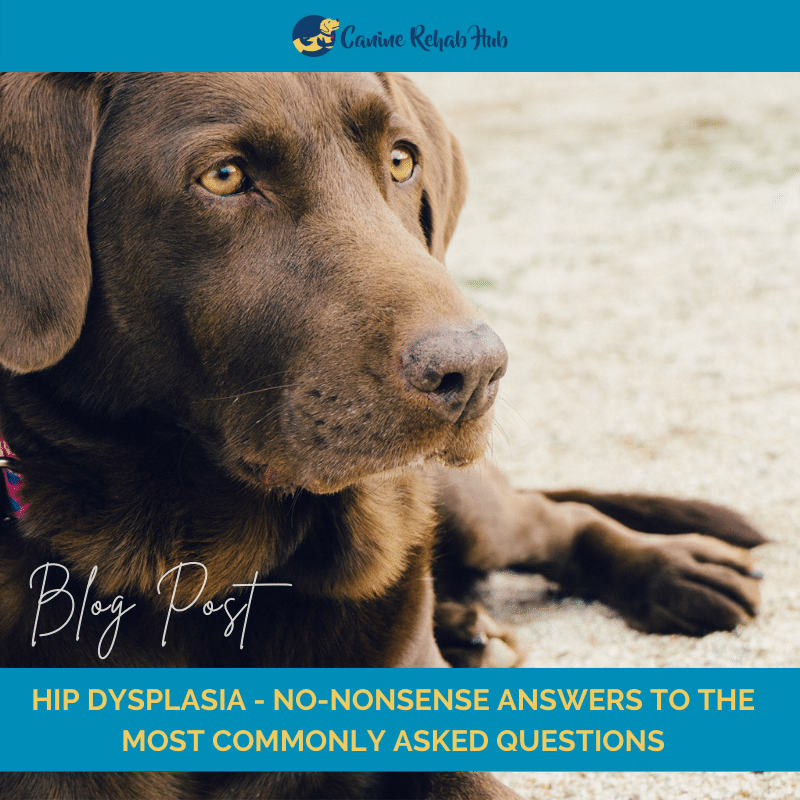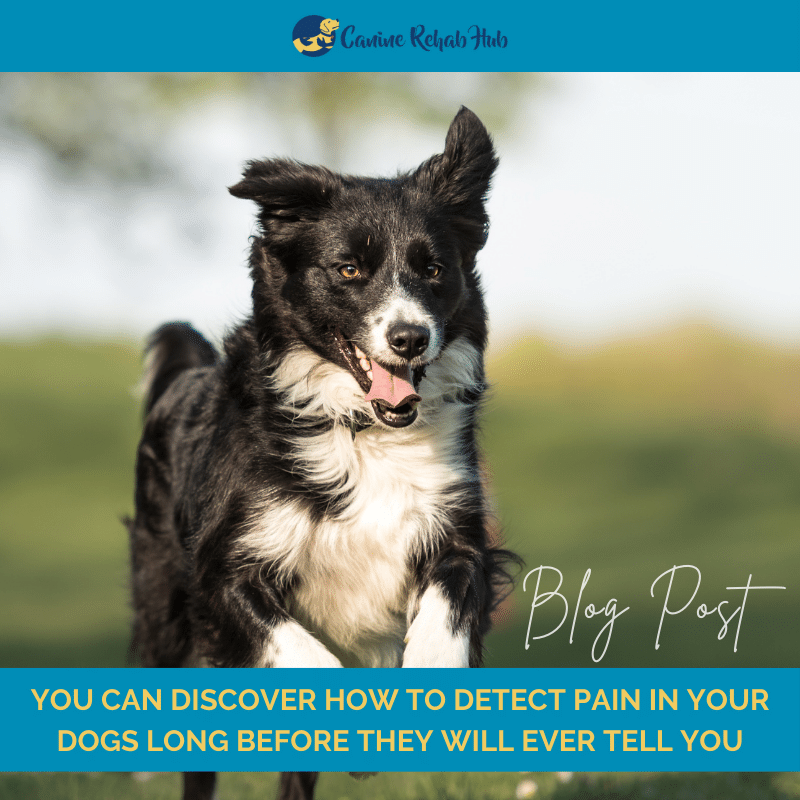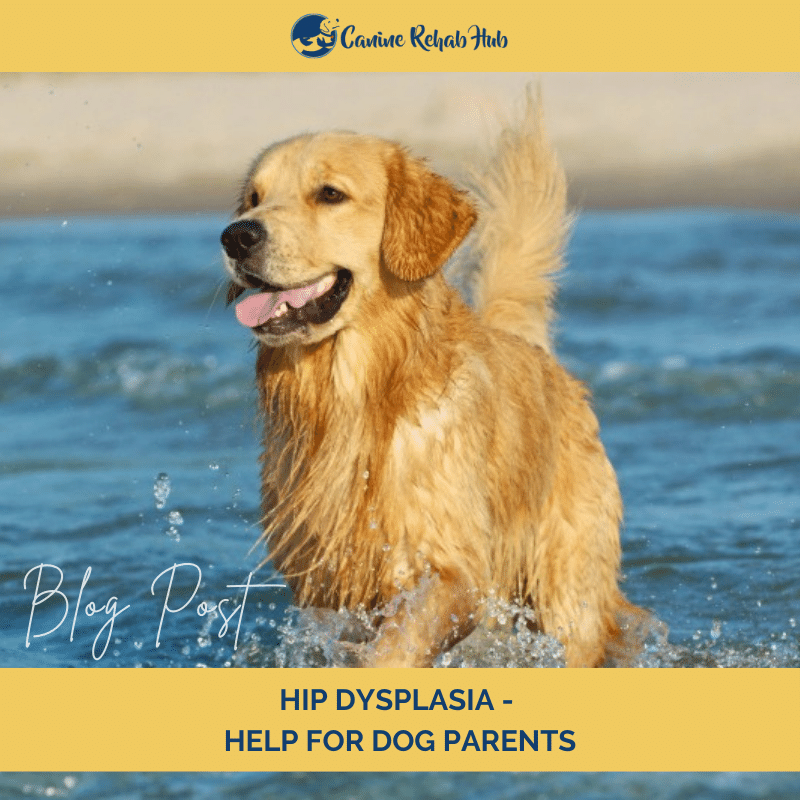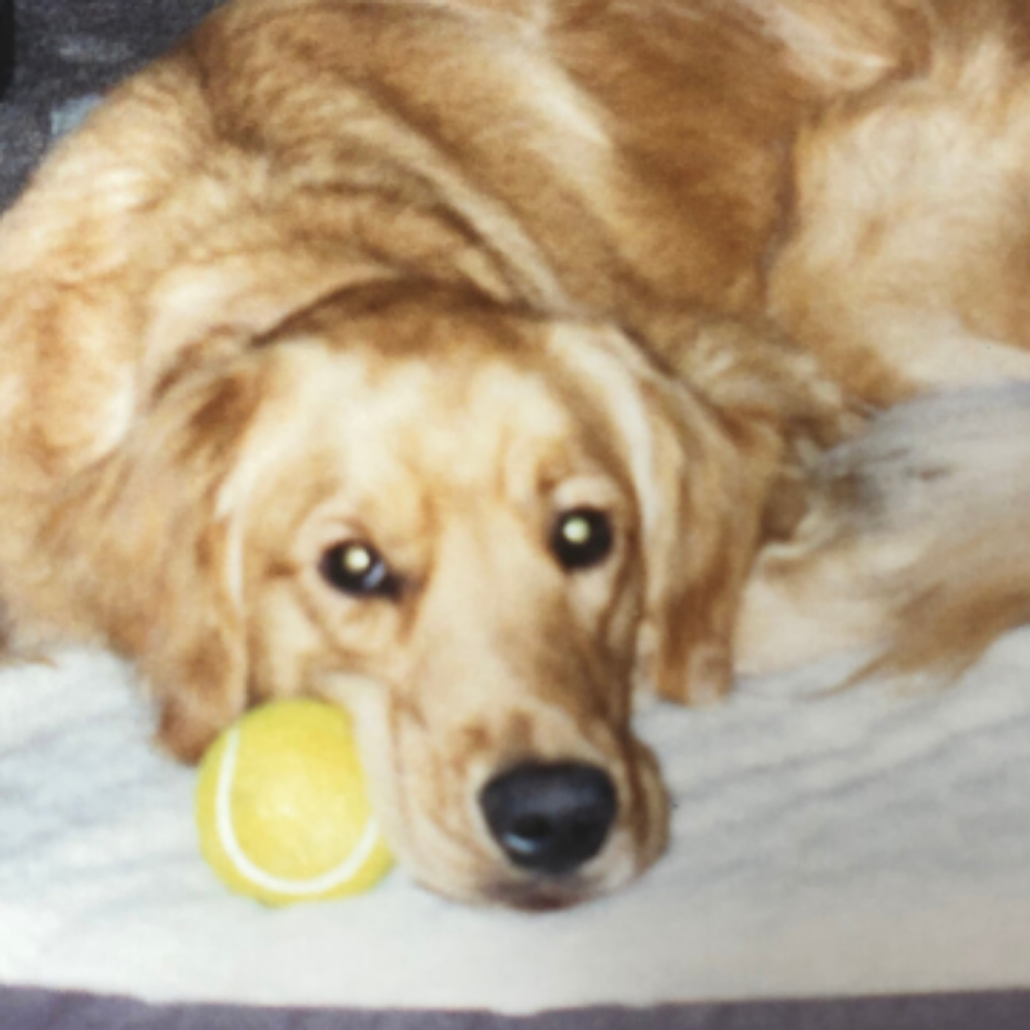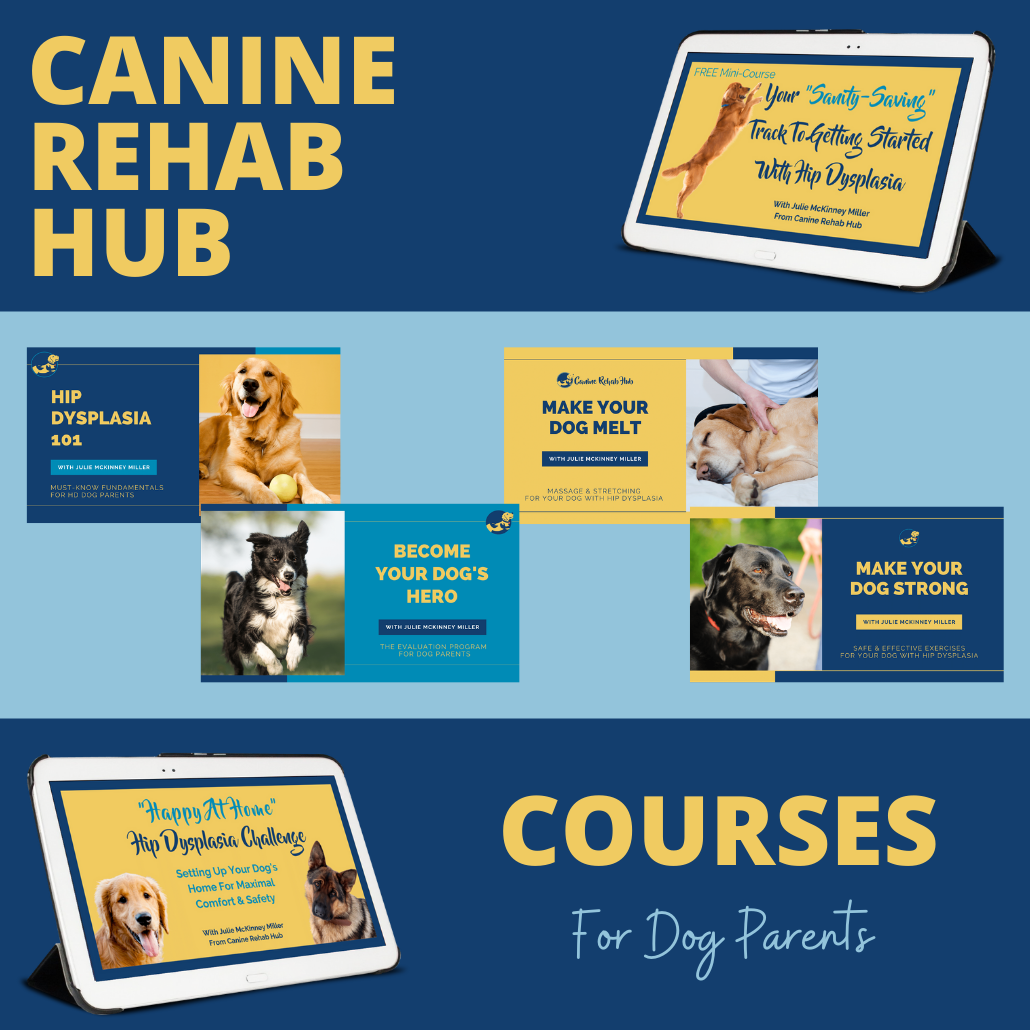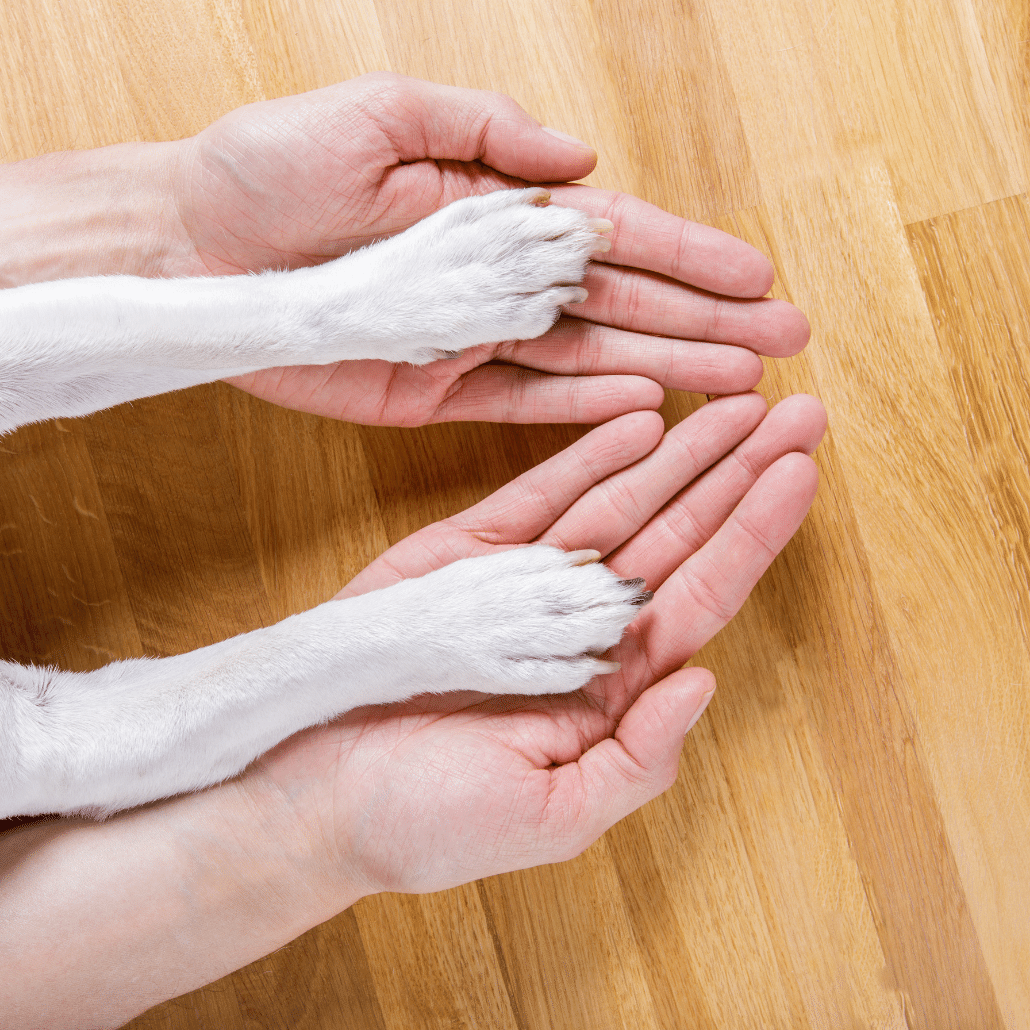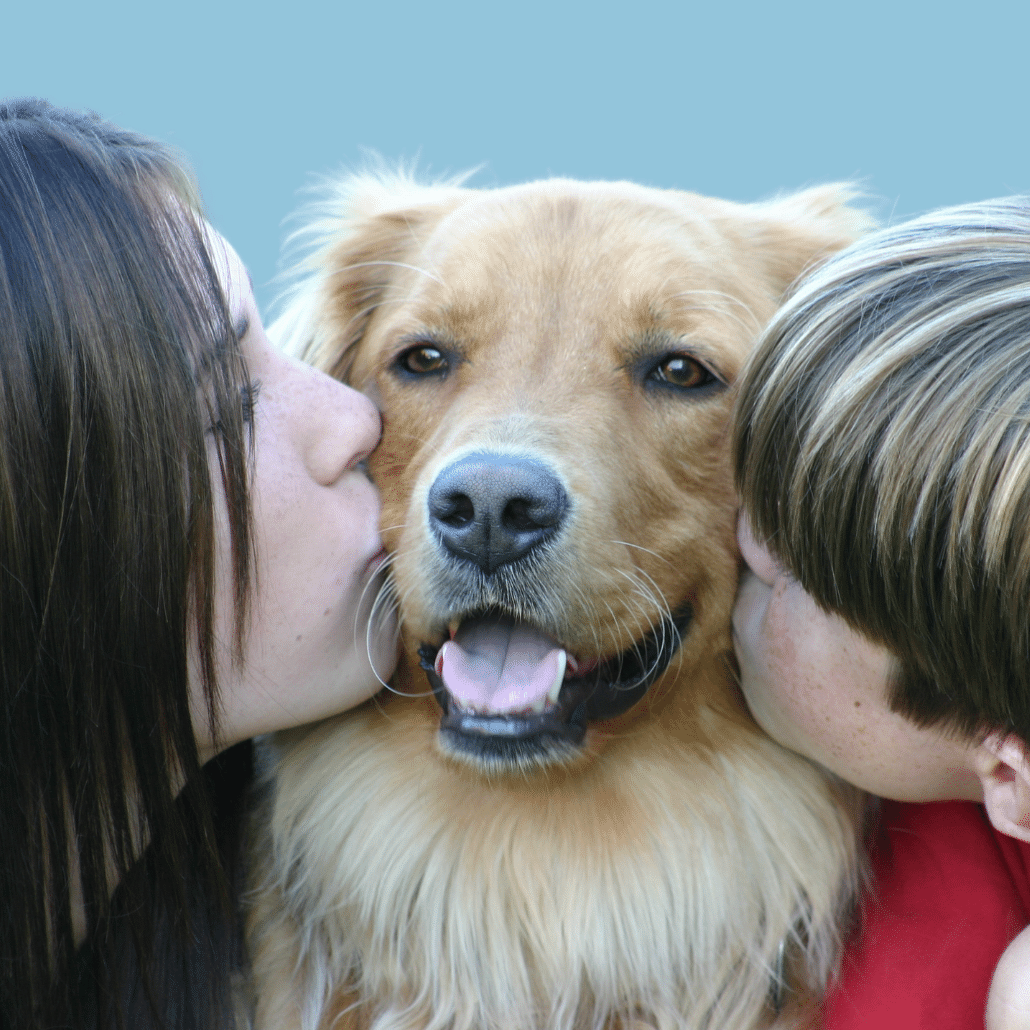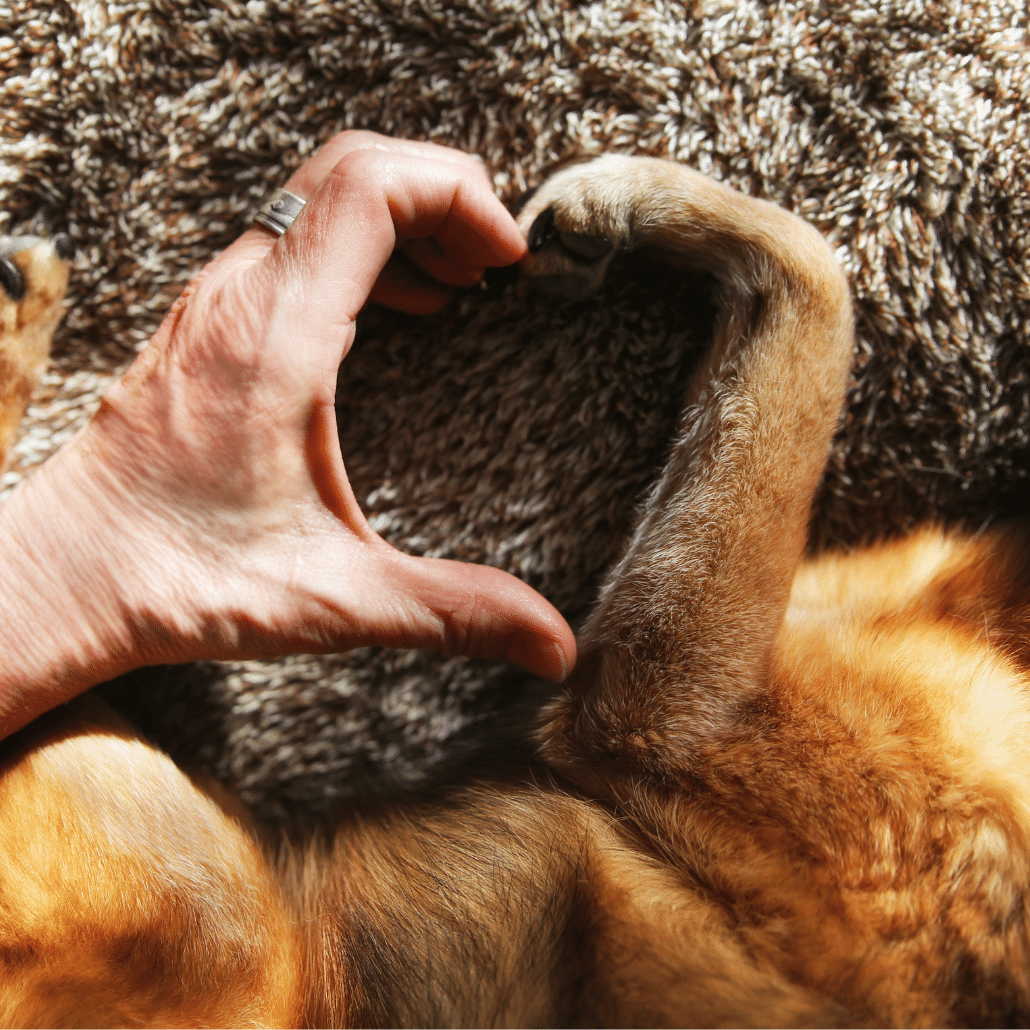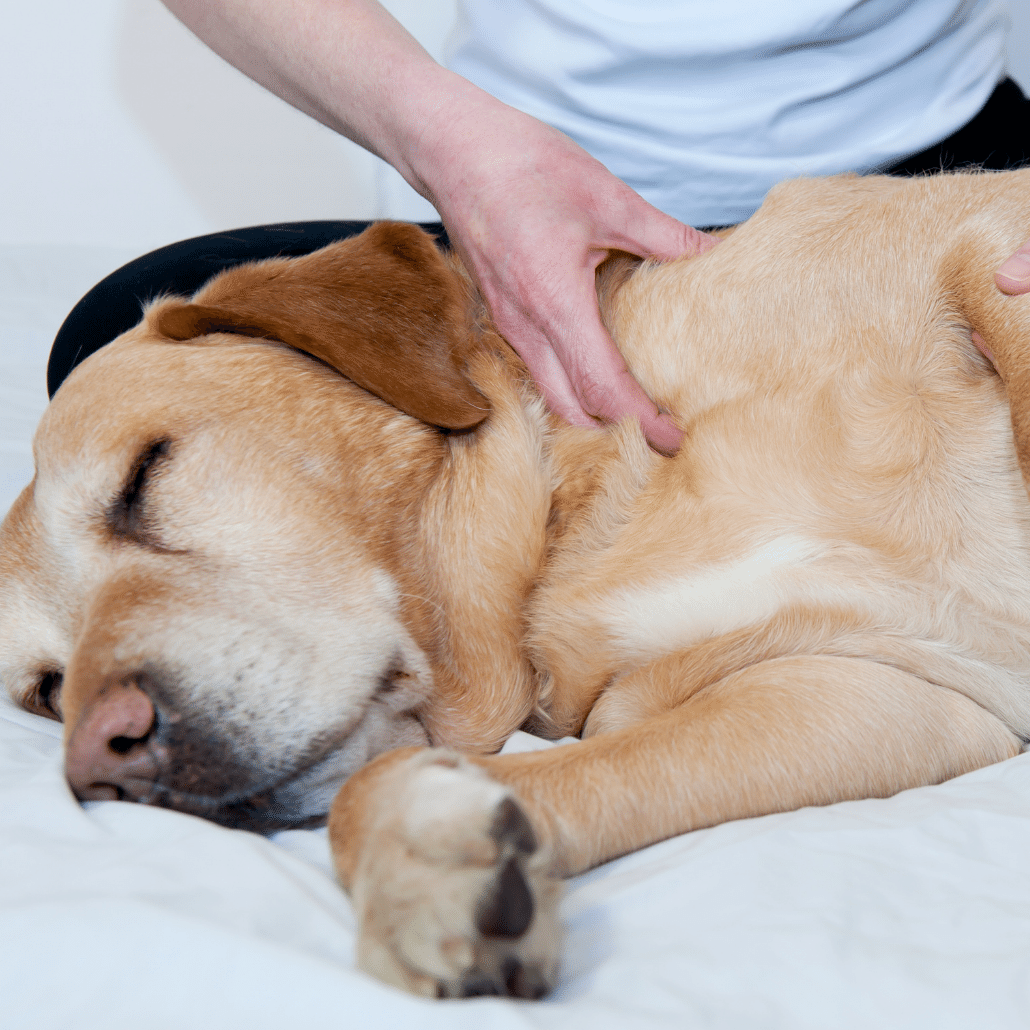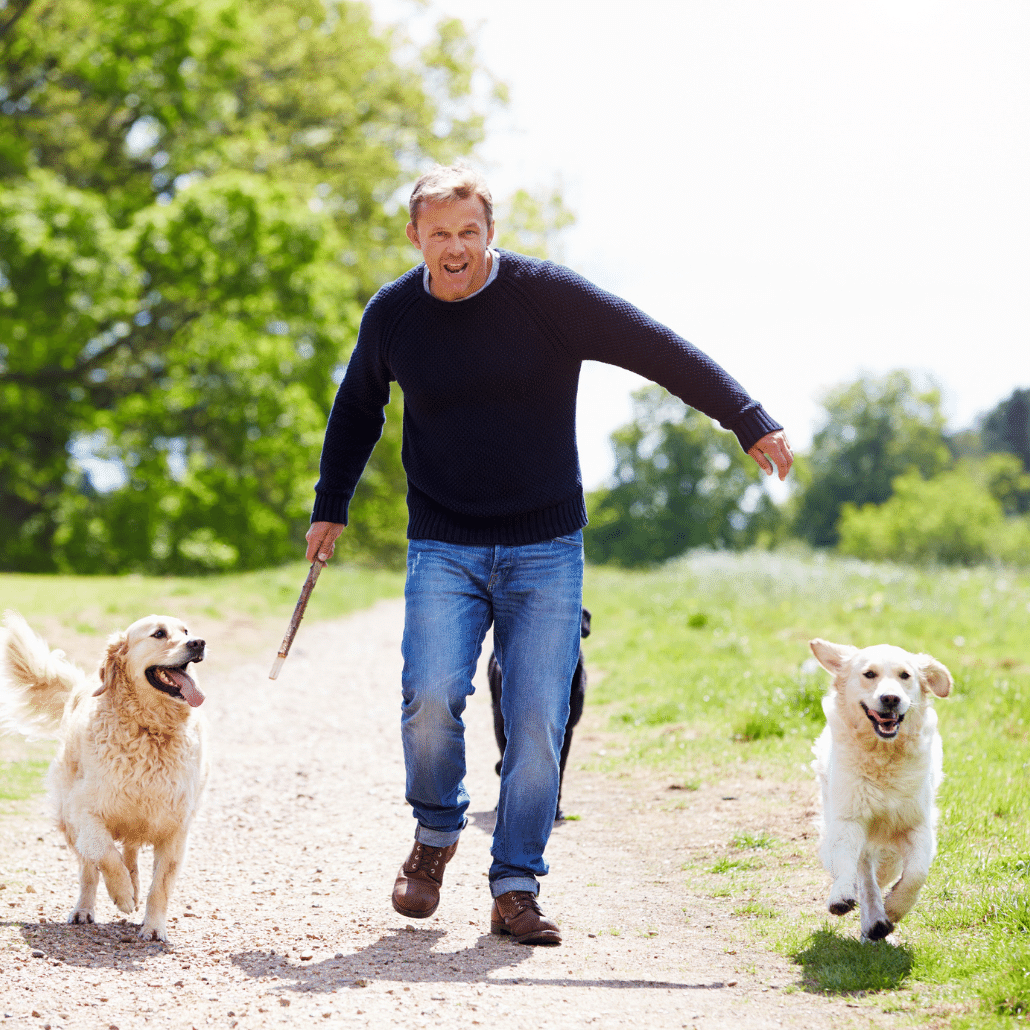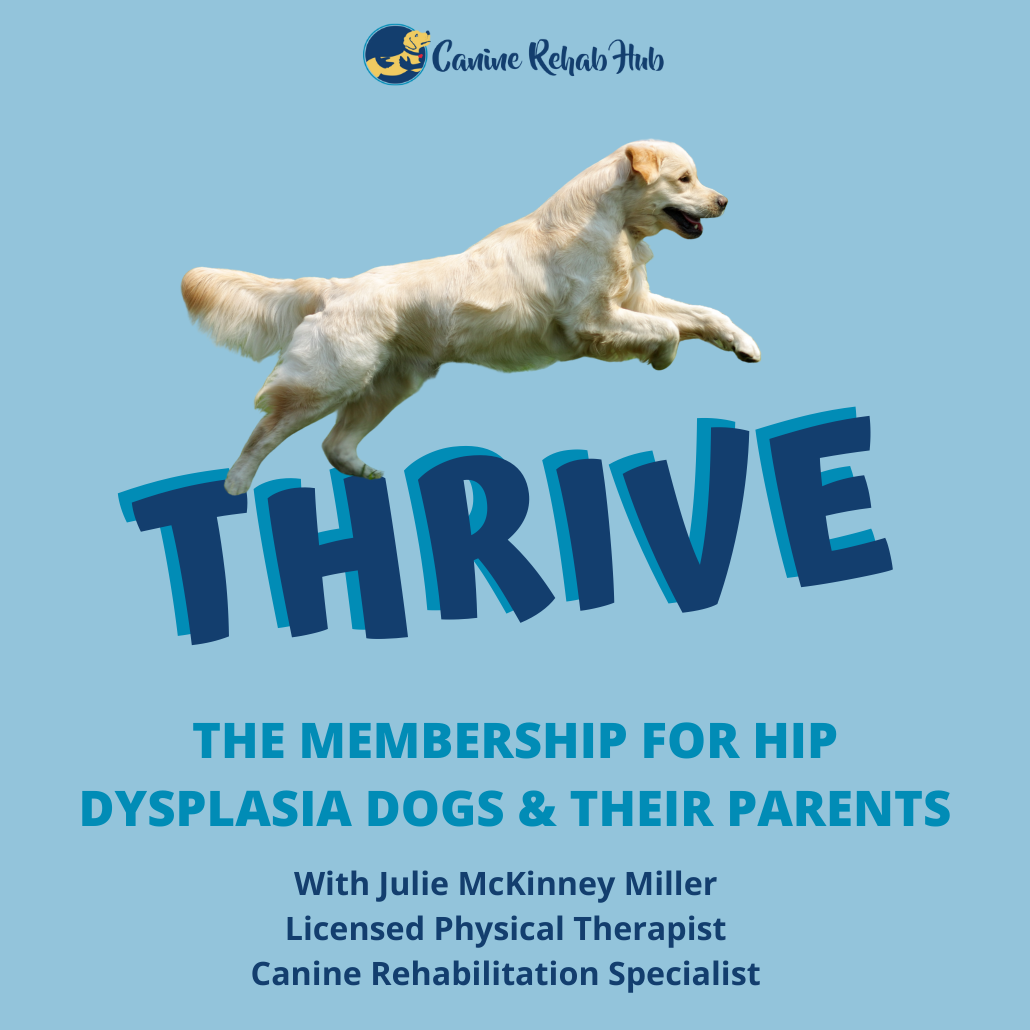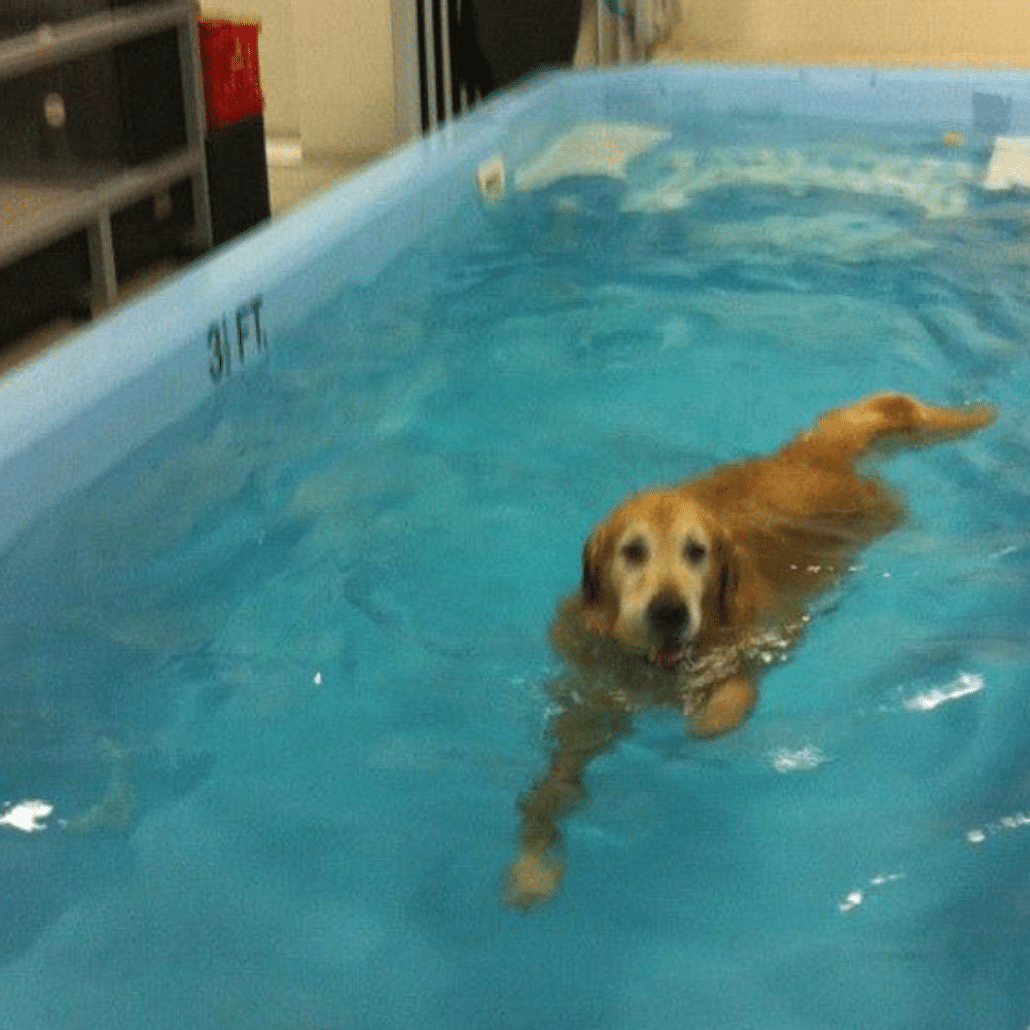Get The Canine Hip Dysplasia Help You Need...
Hip dysplasia help is much needed for dog parents as hip dysplasia is very common in dogs, especially in specific breeds. The breeds that are more prone to hip dysplasia are golden retrievers, rottweilers, german shepherds, saint bernards, newfoundlands, malamutes, labrador retrievers, and other large breeds. However, smaller breeds can develop hip dysplasia too. It’s just much more common in these larger breeds.
So, what can you do about it if you find out your dog has hip dysplasia?
That’s the real question, right? Well, first, take a deep breath and know that I’m here for you and I’ve got your back. Many dog parents in my community talk about how once they found me and started learning about hip dysplasia with me, their “devastation tears” turned to “happy tears.” And I trust we can make that happen with you, too.
I really “get” it as I got into this field of canine physical therapy because of one of my golden retrievers long ago who was diagnosed with what his vet called, “the worst case of hip dysplasia I’ve ever seen.”
We were referred to an orthopedic surgeon and sure enough, a total hip replacement was suggested on the right side (which was far worse than the left side). I’ll jump to the end as you can read about Tucker’s story on the “About” page of this website. Tucker ran and fetched balls every single day of his long and happy 12-year old life…and he never needed surgery!
Dog Parents Have Lots of Questions
What do I need to do know? How do I treat it? Does conservative management really work? Or, should my dog get surgery? What joint supplements should I give my dog?
And above all else, is my dog going to be okay?
We will answer all of these questions in this and future blog posts, YouTube videos, and inside our groups…
But, to that last question, I can say an emphatic YES! Your dog will be just fine, I promise.
How Can I Promise You That Your Dog Can Live A Long, Happy Life?
Well, that’s easy. Personally, I have had 4 of my own dogs with hip dysplasia and not one of them has needed surgery (despite two of them having gone to orthopedic surgeons who recommended total hip replacements based on the x-rays). And, professionally, I have worked with thousands of dogs with hip dysplasia, both those who avoided surgery and those who have had surgery. And every single one of them did just fine.
Hip Dysplasia is NOT a Death Sentence!
I want to stress that hip dysplasia is not a death sentence. I have no idea why a veterinarian in this day and age would even mention it as a possibility. After all, we don’t consider euthanasia if we have an arthritic joint, right? It is way beyond outdated and very inappropriate for euthanasia to be thrown around as an okay outcome for a dog with hip dysplasia! If your vet tells you to consider euthanasia, please do yourself and your dog a favor and find a new vet! FAST!!
The absolute worst thing that can come from hip dysplasia is arthritis and the pain associate with it. But, there are ways to minimize the discomfort and to slow the progression of arthritis. So, please know that it’s just an unfortunate issue you’ll have to deal with, but that hip dysplasia is totally manageable! Really, it is!
So Much Inaccurate and Scary Stuff can be found Online! Here's Your Much-Needed Hip Dysplasia Help!
Much of what can be found online about it is inaccurate and frankly, paints a very scary picture. But that picture is not reality. Hip dysplasia can be thought of in the most simple terms as two bone surfaces not fitting together as intended to make an ideal joint. But it does not shorten lives and it usually doesn’t even impact quality of life much – not for long, anyway – and certainly not when I’m involved and coaching you along through the HD journey!
My Best Hip Dypslasia Help For You...
The most important piece of advice I can give you is that you will need to keep the back legs as strong as possible, so exercise is key. The muscles are the secondary stabilizers of joints (behind ligaments) and by building and maintaining strength in the hind limbs, your dog’s hip joints will feel better and undergo less wear and tear, leading to less arthritic changes and less pain over the years.
There is a catch with the exercise. It’s a delicate balance as you don’t want to do too much or the wrong types of exercises that would cause what I call “flare-ups.” When this happens, it causes the hip(s) to get into the “irritation-inflammation-pain cycle.
Consult with a licensed physical therapist...
My advice is to consult with a licensed physical therapist (or physiotherapist) who specializes in the treatment of dogs. That way, you’ll be on your way with a good plan as to how to properly work with your dog at home each day. It doesn’t take long, but a simple yet effective home program that you can carry out each day is the absolute best thing you can do for your dog.
Stay tuned for upcoming blogs for hip dysplasia help...
The other questions mentioned in the beginning of this blog are common questions that dog parents with dogs with hip dysplasia have… I will address more details on those questions in upcoming blog posts.
In the meantime, read through the “Nuts & Bolts Guide” and check out other resources and opportunities we offer.
Join Our Hip Dysplasia Facebook Groups!
If you’re on Facebook, be sure to join my conservative management for hip dysplasia private group.
Surgery vs no surgery for hip dysplasia has become a very “heated” topic online. I’ll say it up front – loud and clear – when it comes to hip dysplasia, I am a huge proponent of choosing the conservative management treatment path and avoiding surgery altogether.
As you can often hear me say on “lives” or in my courses or programs, “The VAST majority of dogs with hip dysplasia do GREAT without ever needing surgery!” 
So, my Hip Dysplasia Facebook group is geared toward conservative management.
To join Dogs With Hip Dysplasia – Conservative Management Support by Canine Rehab Hub, click here.
I’m working hard to help a million dogs and their parents…
Here’s to fetching your dog’s best life!
Sending lots of love to you and your dogs, 


